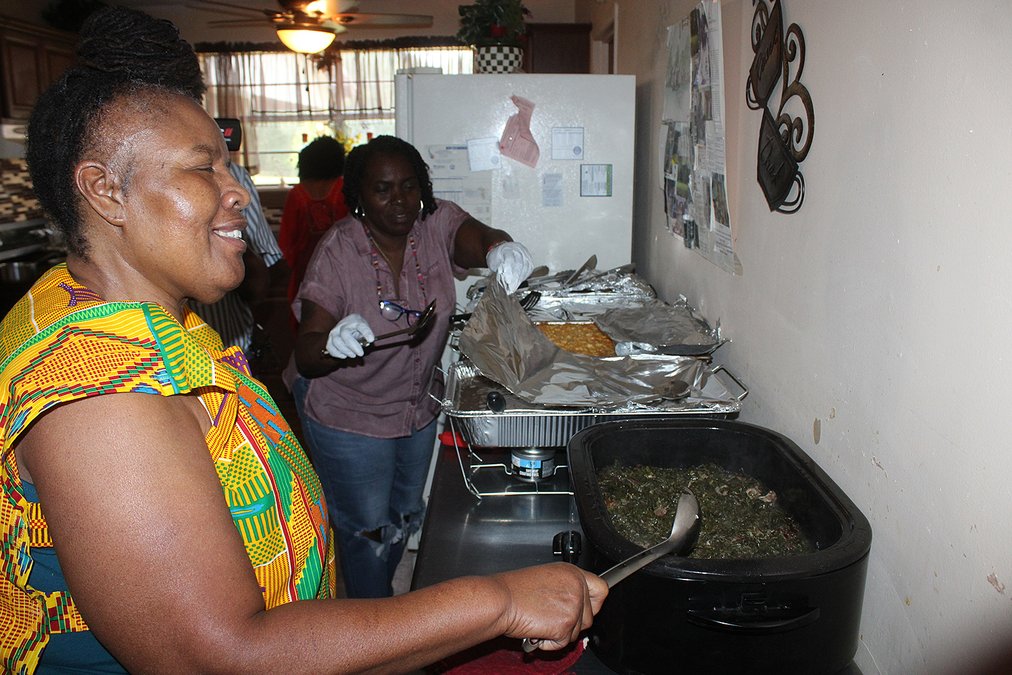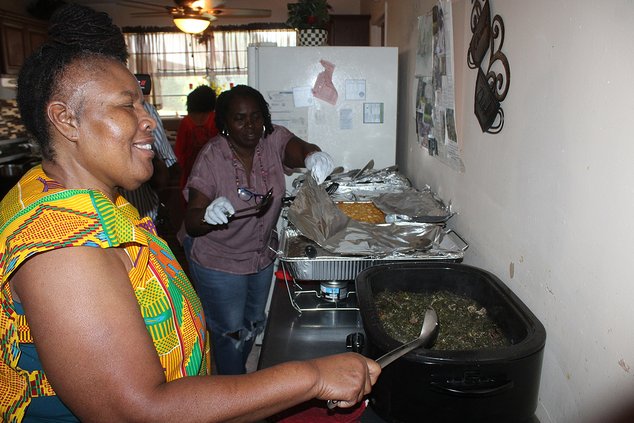RICEBORO — Royalty came for a visit and more Friday afternoon.
More than a dozen Nigerian visitors, some of them kings and princes of their localities, stopped by Henrietta Relaford’s house to sample authentic Gullah-Geechee cuisine, much of which is similar to the cooking in western Africa.
From fried chicken to sweet potato pie to hoppin’ john to pear cobbler and to something known as potato poon, a dessert made with potatoes and molasses, among other ingredients. It is also a dish with roots in west Africa.
Eugenia Cheatham pointed out that Anna Joyner, who hails originally from Liberia, said potato poon is a dish made in her home country.
“People in west African countries and people in coastal Georgia don’t even know each other and have some of the same foods and some of the same dialects,” Cheatham said.
A popular west African dish, jollof rice, is similar to red rice. “It is cooked a little different,” Relaford said.
Okra is prevalent in west Africa too, and so okra and tomatoes were served as well.
“The connection is there,” Cheatham said.
The Nigerian contingent came to Brunswick to visit the site of the Igbo uprising, where, in the early 1800s, 75 west Africans aboard a slave ship revolted and overthrew their captors. But realizing there was little chance of escape, they drowned themselves, according to the legend.
There are some differences between the Gullah Geechee cuisine crafted on the Atlantic shores and that of its west African heritage.
“They like hot,” Relaford said, “I mean really hot food.”
So Henrietta Relaford had Winston Relaford bring over a couple of jars of his homegrown peppers in case their guests wanted a little dash of heat to their dishes.
As more Black Americans visit Africa to see from where their ancestors hailed, they have discovered a connection that goes beyond genetics — there is food and language.
“All those years, you didn’t know ‘who am I?’” Cheatham said. “We didn’t come from ships.”
The villages and towns in Africa, she said, go back before the founding of the United States and American visitors there are struck by how beautiful those countries are. Relaford said the elements of Gullah Geechee, such as neckbones and intestines, are a result of what was left for slaves to eat.
Continuing to cook the cuisine is a way of keeping that heritage alive, Relaford pointed out. She has written a few cookbooks, including “Romancing Your Cakes,” that has recipes of Gullah Geechee baking.
“Gullah Geechee food is very, very important to our culture,” she said. “To be honest with you, if we are not careful, we lose that heritage of our Gullah Geechee foods.”

